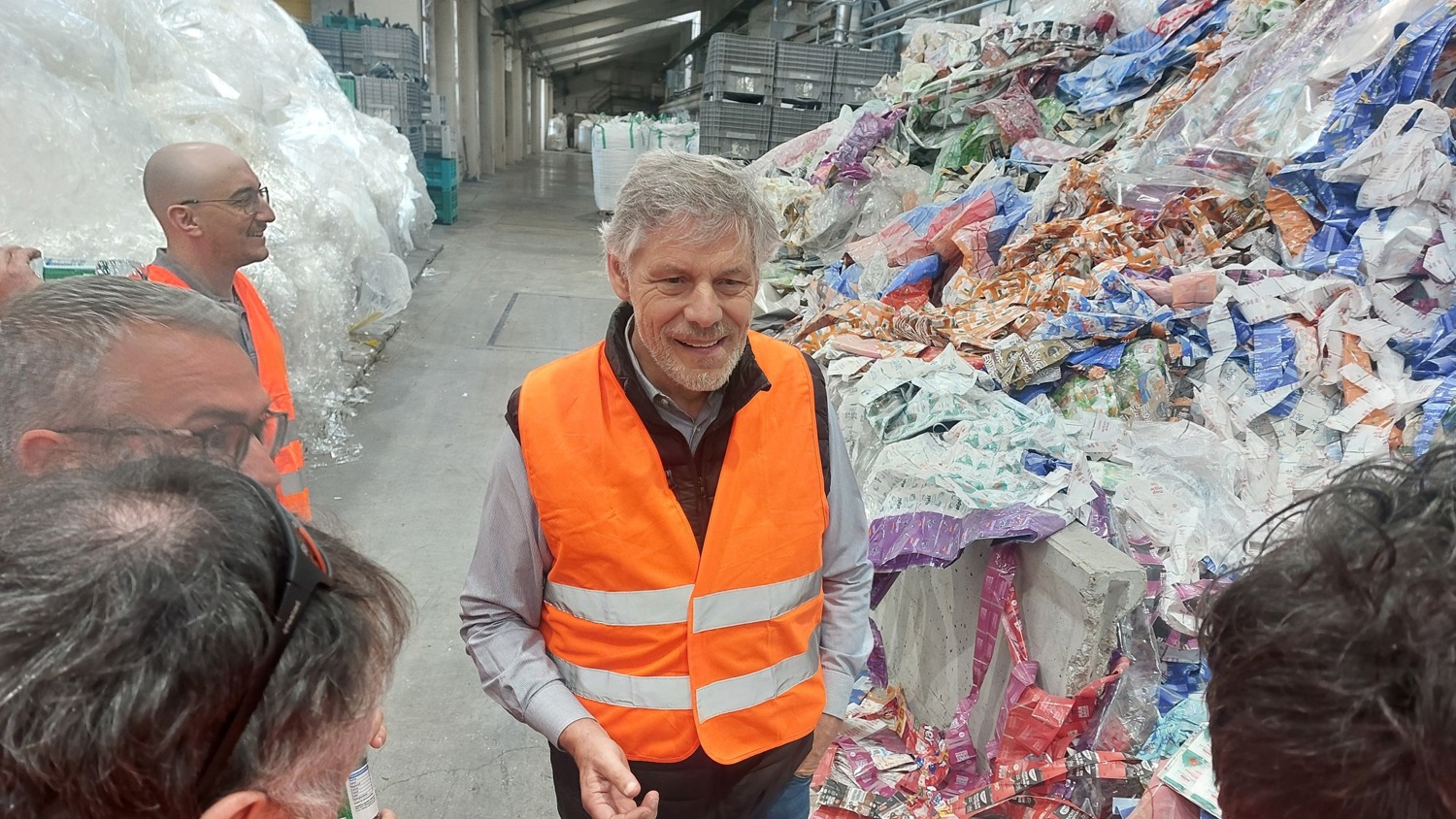
Clean Cities: Interreg solutions for a pollution-free future
Interreg cooperation driving urban innovation
Interreg projects across Europe are enabling cities and regions to cooperate beyond borders, share solutions and apply them in real urban settings. This collaboration is producing visible results, helping cities become cleaner, healthier and more resilient.
Reducing contruction waste through reusing
One area where this change is tangible is in the construction sector. Demolition and renovation generate large amounts of waste, most of which is still discarded. The PREUSE project (Interreg North-West Europe), working across Belgium, France, the Netherlands and Luxembourg, is addressing this issue by helping local authorities integrate reuse practices into public building management. The idea is simple: recover valuable materials before demolition and store them in dedicated reuse centres. These materials can then be repurposed in other public projects, reducing waste and cutting emissions associated with producing new components.
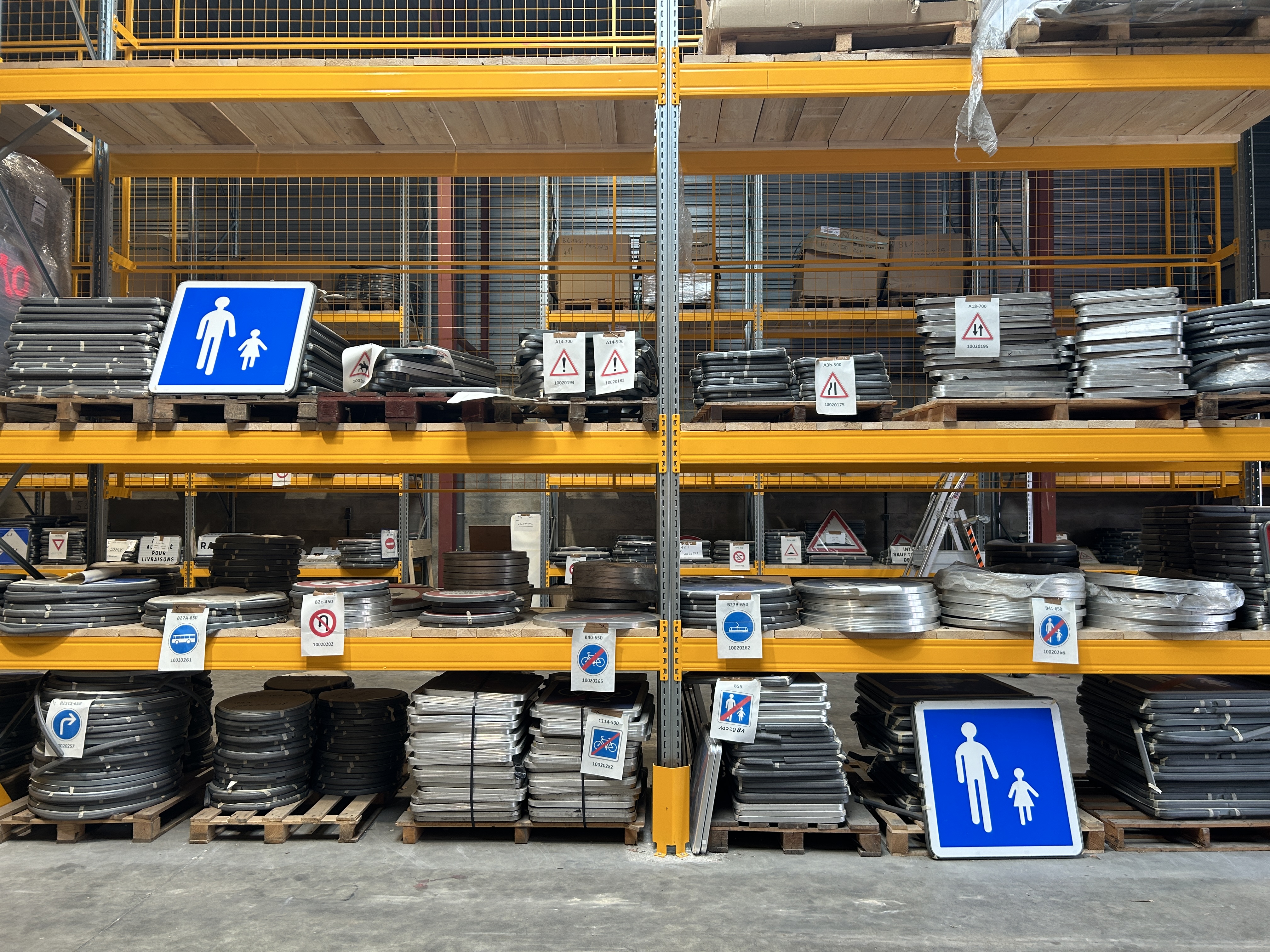
PREUSE, Interreg North-West Europe
Cleaning urban water with innovative technology
Other projects focus on urban water systems, which often carry invisible pollutants that escape traditional treatment processes. In southern Italy, the Re-Water project (Interreg Greece–Italy) has developed a new technology to remove residues such as pharmaceuticals and pesticides from wastewater. The treated water is now being reused to irrigate public gardens and clean the streets in the city of Gallipoli. It’s a practical solution that protects both public health and the marine environment, while reducing water consumption in urban areas.
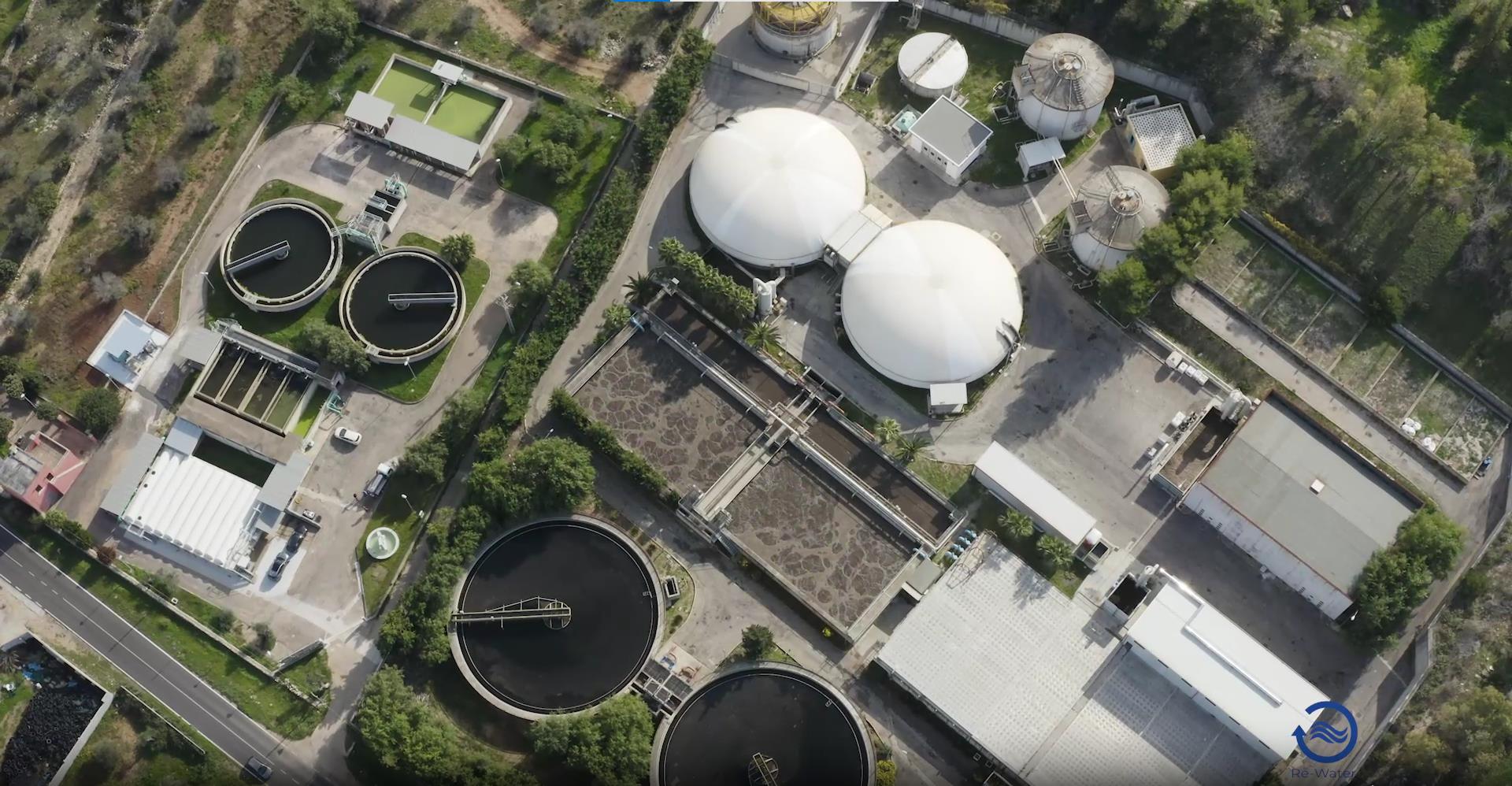
Re-Water Project, Interreg Greece-Italy
Modernising waste collection in the Balkans
Waste in general remains a daily issue for many municipalities. Across Croatia, Bosnia and Herzegovina and Montenegro, the RECIRCLE project (Interreg Croatia–Bosnia and Herzegovina–Montenegro) is modernising waste collection by introducing underground containers and reverse vending machines. These upgrades not only reduce litter in public spaces but also improve separation and recycling rates. Combined with awareness-raising and the creation of a digital platform for circular economy know-how, the project is helping local administrations professionalise their waste systems.
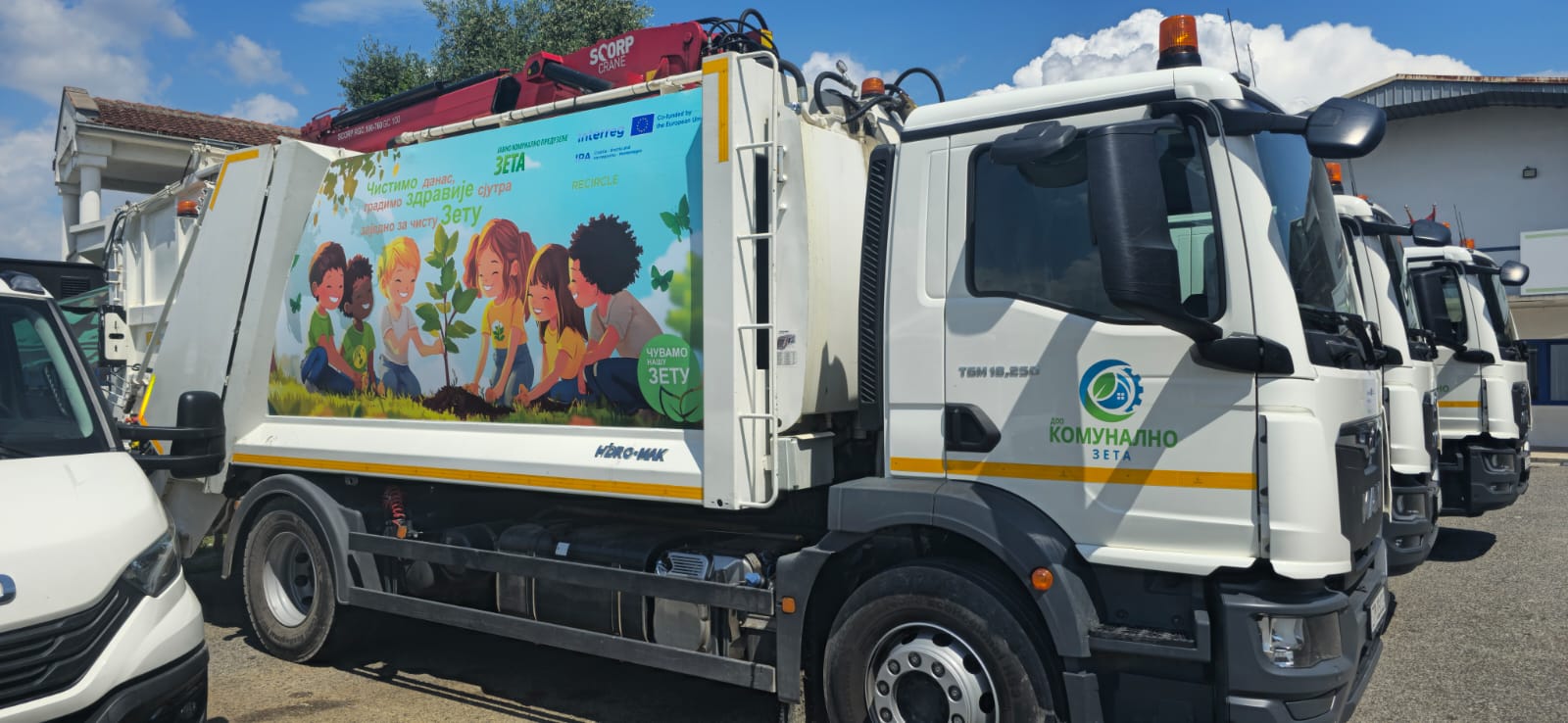
RECIRCLE Project, Interreg Croatia-Bosnia and Herzegovina – Montenegro
Bringing Circular Thinking to Office Furniture
Circular thinking is also being applied in sectors that are often overlooked. Office furniture, for example, is rarely seen as a sustainability issue. But the CEO (Circular Economy Office) project (Interreg North Sea), in countries like Germany, Belgium and Denmark, is challenging this. It’s introducing circular design principles, like modularity and easy disassembly, to extend the life of office furnishings. Public institutions involved in the project are now buying differently, managing assets more efficiently, and reducing unnecessary waste.
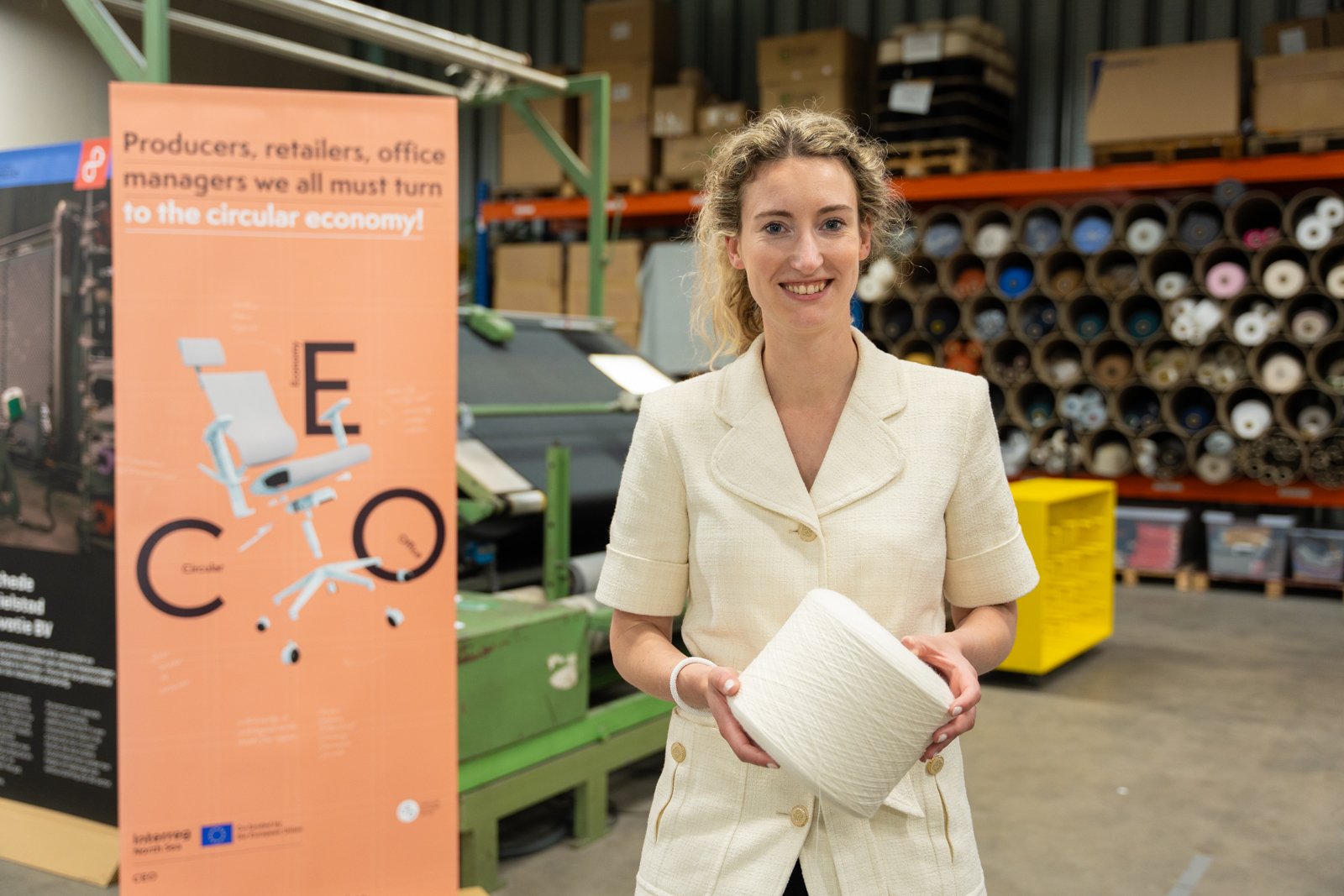
CEO Project, Interreg North Sea
Tackling textile waste in remote regions
Textile waste is another growing problem, particularly in northern and remote areas. The THREADs project (Interreg Northern Periphery and Arctic), active in countries such as Finland and Iceland, supports a full-cycle approach: from smarter design and material choices to better collection and reuse practices. The project also incorporates social inclusion - creating local jobs and engaging communities in the shift to more sustainable textile systems.
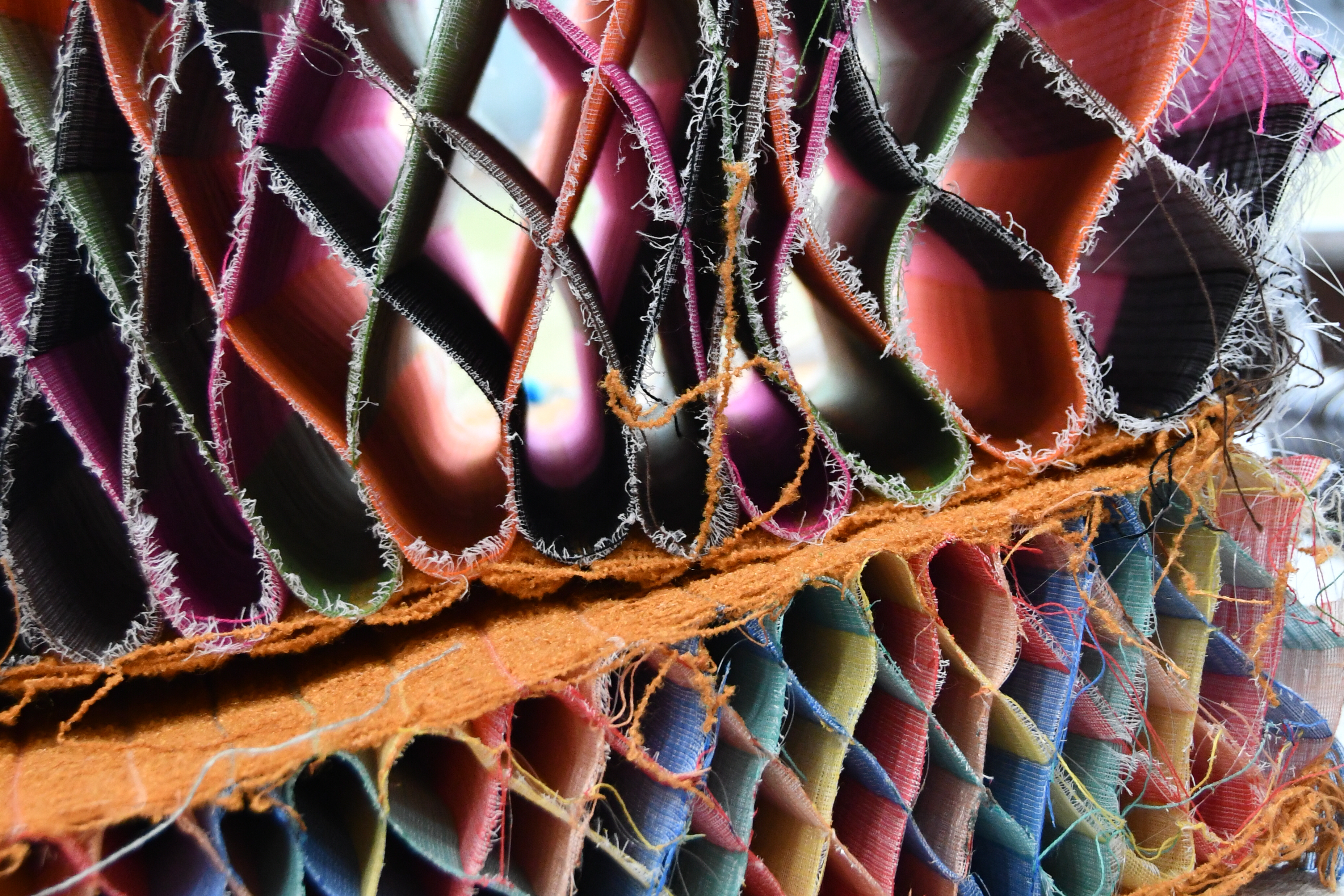
THREADS Project, Interreg Northern Periphery and Arctic Programme
Supporting small businesses in the circular transition
Meanwhile, small businesses in cross-border regions are also part of the clean transition. The VIRIDI project (Interreg Slovenia–Austria), operating between Austria and Slovenia, supports SMEs in adopting greener business models - encouraging better recycling, use of local renewable energy, and cooperation through a bilingual digital platform. This type of support is essential to bring circular practices into the day-to-day operations of small enterprises, especially in less urbanised areas.
Cooperation as the key to scalable impact
What links all these efforts is a common approach: concrete action based on cooperation. Instead of reinventing the wheel, cities and regions are sharing ideas, testing solutions, and scaling what works. Interreg creates the space for this to happen. It’s not about isolated pilots but about building networks where good practices can travel and adapt.
Turning clean declarations into measurable progress
Cleaner cities won’t be achieved through declarations alone - they require steady, applied work. The projects highlighted here are examples of that: tackling specific challenges with focused, often technical interventions that bring measurable results. Whether through better construction reuse, smarter waste collection or circular design in everyday systems, these initiatives show that progress is not just possible, it’s already happening.
As EU Green Week puts the focus on “Clean” as a key dimension of Europe’s sustainable transition, Interreg projects across the continent are showing what this looks like in practice. And they remind us that the best way forward is often together.
